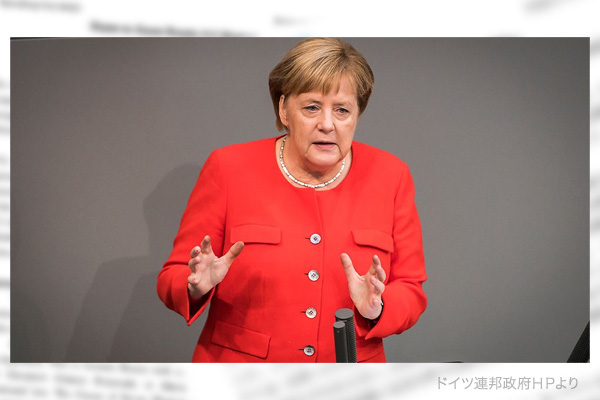In April when the novel coronavirus was going rampant in the world, the editor-in-chief of the Bild, the largest daily tabloid in Germany, sent an open letter to Chinese President Xi Jinping, becoming a popular topic of conversation. “You monitor everything, every citizen, but you refuse to monitor the diseased wet markets in your country,” said the letter that held China responsible for the global spread of the virus and questioned the Chinese leader relentlessly and sarcastically. Regarding a Wuhan laboratory suspected by some to have leaked the coronavirus, the letter said, “Why are your toxic laboratories not as secure as your prisons for political prisoners?”
As the influential German tabloid sent such provocative letter, we could not rule out the possibility that German public opinion on China might dramatically change and that the change might trigger a policy of breaking away from China.
Tolerating China’s hegemonic expansion
However, a foreign and security policy speech German Chancellor Angela Merkel made in late May before taking the rotating European Union presidency in July was unbelievable. Even at this stage, Merkel virtually confessed that she still has an illusion about China, supports China’s greedy desire for hegemony and recognizes China’s ambition to lead the world.
In the speech, Merkel said the EU has a “great strategic interest in actively shaping the cooperation with China” as “one of the essential players of the 21st century.” Noting that EU-China relations should not be limited to trade expansion and the maintenance of protocol, she said, the EU “must also recognize the strength of China’s determination to demand a leading position in the existing international architecture.” Merkel further said the EU “should not only recognize this ambition, but also confidently accept the challenge it presents.” (Translation by the author from original German)
Merkel’s speech was almost equal to accepting a future when China as a dictatorial country will lead the world. If the speech represents Merkel’s foreign policy doctrine for leading the EU, Japan must not be optimistic that Europe might break away from China.
U.S.-Europe difference over China policy
Given that the EU has difficulties in cutting deals with China over the improvement of investment condition in China and climate change countermeasures, Merkel might have tried to use flattery for preventing an environment for bilateral negotiations from worsening unnecessarily. Nevertheless, her approach indicates her groundless belief that the engagement policy with China still works.
Such policy subservient to China is the flip side of her anti-Trump attitude. As U.S. President Donald Trump has treated traditional European allies bluntly, anti-Trump sentiment in Europe is stronger than assumed. The more Trump increases pressure on China, the more major European countries such as Germany refine the China card.
Nobuyuki Sato is a professor at Otemon Gakuin University and former bureau chief in Washington, D.C. and correspondent in Berlin for the Jiji Press.


